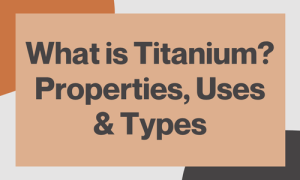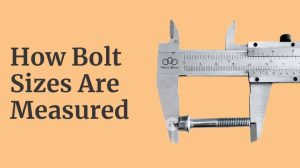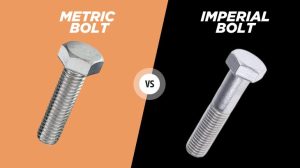Ti-6Al-4V also known as Titanium Grade 5, is the most popular titanium alloy. It is known for its excellent strength, corrosion resistance, and light weight. This alloy is used in aerospace, marine, medical, and other areas that require high performance and dependability. The balance of properties makes it suitable for both high-performance engineering and long-term durability.
What is Ti-6Al-4V?
Ti-6Al-4V is a titanium alloy that contains aluminum and vanadium as main alloying elements. It belongs to the alpha-beta titanium alloy group, which means it combines the best features of both alpha and beta titanium phases. This combination improves strength while keeping the material workable. Ti-6Al-4V is used in areas where materials must perform under stress, resist corrosion, and remain lightweight.
Composition of Ti-6Al-4V
The standard chemical composition of Ti-6Al-4V is:
- Titanium (Ti): Balance
- Aluminum (Al): 6%
- Vanadium (V): 4%
- Iron (Fe): 0.25% max
- Oxygen (O): 0.2% max
- Other elements: Trace amounts
Aluminum strengthens the alpha phase and vanadium stabilizes the beta phase. This combination results in a tough alloy.
Mechanical Properties of Ti-6Al-4V
Ti-6Al-4V is known for its high strength-to-weight ratio. It can withstand high loads without adding unnecessary weight to a structure. With a tensile strength of 895 MPa (130,000 psi) and a yield strength of 828 MPa (120,000 psi), the alloy works well in demanding environments. It also offers an elongation of 10–14% which gives it enough flexibility to absorb stress without breaking. The hardness of 334 HB makes Ti-6Al-4V wear-resistant. The fatigue strength of 510 MPa ensures it can withstand repeated loading cycles. These properties make it reliable for parts that face constant stress.
Physical Properties of Ti-6Al-4V
Ti-6Al-4V has a density of 4.43 g/cm³ which makes it 40% lighter than steel while maintaining the same strength values. The melting point is 1,660°C (3,020°F) which allow it to work at high temperatures. Ti-6Al-4V has a thermal conductivity of 6.7 W/m·K which slower heat transport than steel or aluminum. This is a key characteristic in situations where heat resistance is required. This material has a modulus of elasticity of 113.8 GPa, and a specific heat capacity of 560 J/kg·K, making it stiff and temperature-resistant.
Advantages of Ti-6Al-4V
- High Strength-to-Weight Ratio – Provide steel-like strength at about 40% less weight, making it perfect for aerospace, automotive, and marine applications.
- Excellent Corrosion Resistance – A protective oxide layer grows naturally which resists seawater, acids, and various other industrial chemicals.
- Good Fatigue Resistance – Can handle repeated pressure and stress without cracking which ensure long-term reliability in safety-critical applications.
- Biocompatibility – Safe for use in medical implants, dental tools, and prostheses that will remain in the human body for years.
- High-Temperature Performance – Maintains strength and stability at high temperatures, making it ideal for jet engines, exhaust systems, and heat-intensive machinery.
- Long Service Life – Can withstand severe environments which lowers replacement and maintenance expenses over time.
- Versatile Fabrication Options: Can be forged, welded and made in a variety of forms, including powder for 3D printing.
Common Forms of Ti-6Al-4V
Ti-6Al-4V is available in numerous product forms, including:
- Bars and Rods
- Plates and Sheets
- Forgings
- Pipes and Tubes
- Wire Powder for Additive Manufacturing.
Different shapes are chosen based on the project’s design and performance needs.
Applications of Ti-6Al-4V
Ti-6Al-4V is used in various industries due to its unique property balance:
- Aerospace Industry
The strength and lightweight nature make Ti-6Al-4V suitable for airplane structures, engine components, and landing gear. - Marine Industry
Corrosion resistance makes this material appropriate for offshore structures, propeller shafts, and seawater pipe systems. - Medical Industry
It is employed in surgical implants, dental implants and prostheses because of its biocompatibility. - Automotive Industry
Used in high-performance and racing cars for engine parts and suspension components. - Industrial Applications
Used in chemical processing equipment and heat exchangers where corrosion and strength are critical. - Sports Equipment
Used in premium bicycles, golf clubs, and other high-performance gear to provide strength without adding weight.
Limitations and Considerations
While Ti-6Al-4V has several advantages, there are some aspects to consider before using it in a project:
- Higher Cost – Ti-6Al-4V is more expensive than common metals such as steel or aluminum, which might have an influence on large-scale manufacturing budgets.
- Challenging Machinability – Requires special tooling, slower cutting speeds, and effective cooling which can increase manufacturing time.
- Welding Difficulty – Needs controlled welding conditions to avoid loss of strength or structural defects.
- Lower Thermal Conductivity – Transfers heat more slowly than many metals, which can affect applications where fast heat dissipation is needed.
These points help you decide if Ti-6Al-4V is the right choice for any application.
Heat Treatment
Ti-6Al-4V can be heat treated to modify its mechanical properties. Annealing enhances ductility, and solution treatment and aging increases strength. Heat treatment allows the alloy to be tailored to individual requirements.
Machinability and Fabrication
While strong, Ti-6Al-4V is more difficult to process than steel or aluminum. It requires sharp instruments, slow cutting speeds and adequate cooling. It can be welded, but the heat must be controlled to avoid damaging the structure.
Why Ti-6Al-4V Is Preferred
Ti-6Al-4V, often known as Titanium Grade 5, is a versatile alloy used in demanding applications. The high strength-to-weight ratio, corrosion resistance, and ability to withstand extreme environments make it a preferred choice for aerospace, maritime, medical, and industrial applications. It is more expensive than steel or aluminum, but provides long-term performance which makes it cost-effective. Understanding Ti-6Al-4V properties help in selecting it for tough applications.






